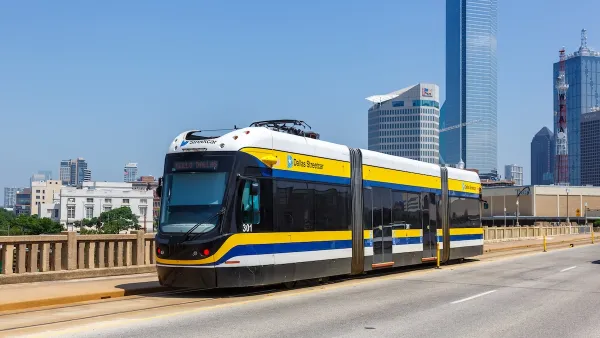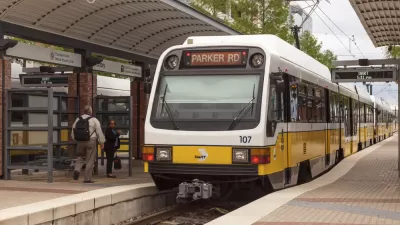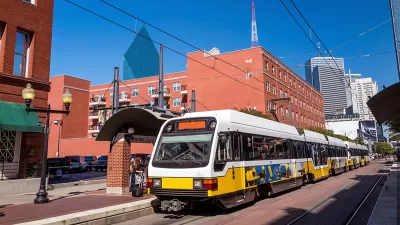The agency’s director wants to change the city’s transportation priorities and provide more mobility options to residents.

Dallas established a Department of Transportation just last year, and Michael Rogers, the city’s new transportation director, envisions a more connected city less focused on cars. Rogers is taking steps to bring comprehensive transportation planning and multimodal networks to Dallas. In addition, he is behind the use of data analytics that brought electric scooters to the city and have helped guide pedestrian safety projects.
Emily Nonko reports that Rogers has also taken on the Texas Department of Transportation by challenging plans to widen Interstate 30 East, a move that city leaders described as "radical":
He pushed back, offering his own "guiding principles" for the redesign. They included better connections for cyclists and pedestrians, no highway expansion in height or width, and bringing the elevated portion of the road below grade to reconnect neighborhoods that have been torn apart by infrastructure development.
Rogers has plans to continue a shift away from a singular focus on road projects, develop a strategic mobility plan, and make public input an integral part of the planning process.
Still, Nonko points out that Dallas faces a long road and many hurdles in improving the region’s transportation system, particularly around transit. "A big criticism of Dallas Area Rapid Transit’s sprawling rail system: While the largest in the country, it’s inefficient and doesn’t effectively serve many dense neighborhoods."
FULL STORY: Dallas DOT Is Making Plans for a Better-Connected City

Planetizen Federal Action Tracker
A weekly monitor of how Trump’s orders and actions are impacting planners and planning in America.

Map: Where Senate Republicans Want to Sell Your Public Lands
For public land advocates, the Senate Republicans’ proposal to sell millions of acres of public land in the West is “the biggest fight of their careers.”

Restaurant Patios Were a Pandemic Win — Why Were They so Hard to Keep?
Social distancing requirements and changes in travel patterns prompted cities to pilot new uses for street and sidewalk space. Then it got complicated.

California Homeless Arrests, Citations Spike After Ruling
An investigation reveals that anti-homeless actions increased up to 500% after Grants Pass v. Johnson — even in cities claiming no policy change.

Albuquerque Route 66 Motels Become Affordable Housing
A $4 million city fund is incentivizing developers to breathe new life into derelict midcentury motels.

DC Area County Eliminates Bus Fares
Montgomery County joins a growing trend of making transit free.
Urban Design for Planners 1: Software Tools
This six-course series explores essential urban design concepts using open source software and equips planners with the tools they need to participate fully in the urban design process.
Planning for Universal Design
Learn the tools for implementing Universal Design in planning regulations.
Heyer Gruel & Associates PA
JM Goldson LLC
Custer County Colorado
City of Camden Redevelopment Agency
City of Astoria
Transportation Research & Education Center (TREC) at Portland State University
Camden Redevelopment Agency
City of Claremont
Municipality of Princeton (NJ)





























